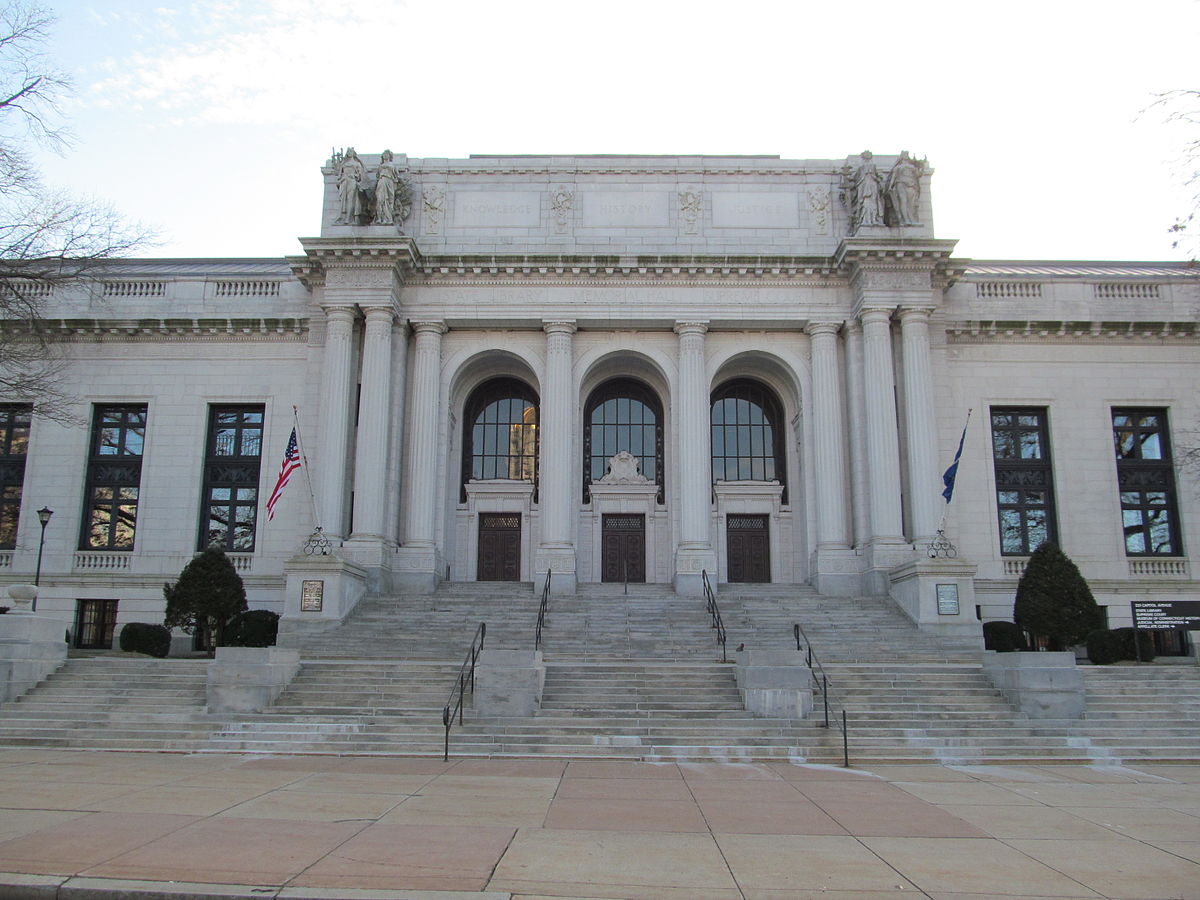
Wikimedia Commons
This article has been updated to reflect the version that ran in print.
A new nominee for chief justice of the state Supreme Court could become the first African-American to hold that position in Connecticut’s history.
A week after his original pick for the state’s chief justice was rejected by the Senate, Gov. Dannel Malloy on Thursday nominated Stamford native and state Supreme Court Associate Justice Richard Allan Robinson to head the bench. If confirmed, Robinson would fill a position that has been vacant since the retirement of former Chief Justice Chase Rogers in February.
“[Robinson] has demonstrated throughout his tenure in the judiciary that he is a consummate jurist who has a keen understanding of the law and legal concepts,” Malloy said at a press conference on Thursday. “There is no doubt in my mind the Justice Robinson will prove to be a great leader for our judicial system should he be confirmed.”
A graduate of the University of Connecticut and West Virginia School of Law, Robinson has served as an associate justice since 2013, making him the third-longest-serving member of the state’s highest court. He was appointed as a judge to the state’s Superior Court in 2000, and seven years later he was nominated to the Appellate Court. Before his tenure in the Connecticut courts, Robinson was an assistant corporation counsel for the city of Stamford.
“I am looking forward to the possibility of serving the people in this new capacity,” Robinson said at a press conference on Thursday. “If my nomination is approved I promise that from day one, until my final day at the branch, I will do all that I possibly can do to live up to the responsibilities that comes with this new position.”
On March 27, the Connecticut senate — on a 19–16 vote that fell largely along party lines — struck down Andrew McDonald, Malloy’s first nomination to the seat. Currently an associate justice on the Supreme Court, McDonald would have become the nation’s first openly gay state Supreme Court chief justice. Republicans took issue with McDonald’s past legal decisions, including his vote in a landmark 2015 case that ruled that the death penalty was unconstitutional, and his reputation as an activist judge.
Unlike McDonald, Robinson’s appointment has not drawn criticism from top Republicans in the General Assembly. Senate Republican President Pro Tempore Len Fasano ’81, R-North Haven, who had previously suggested Robinson as a compromise candidate, said he could see himself voting for him.
“I don’t agree with every decision Justice Robinson has ever done,” Fasano said in an interview broadcast by the government-access television network. “However, overall, I think that Justice Robinson would be a good chief justice.”
Ronald Schurin, a professor at the University of Connecticut, said lawmakers saw Robinson as Malloy’s probable choice once the Senate rejected McDonald, because they believed that both legislative bodies would confirm the nomination. Shurin said there is not “serious criticisms” of his work as a justice. Robinson will likely lean further left than former Rogers, according to Sacred Heart University political science professor Gary Rose.
Still, Robinson’s positions on the death penalty and state education funding will likely be hot topics as lawmakers look toward the confirmation hearing. Although Robinson did not vote in the 2015 death penalty case, he did vote in a 2016 case upholding that precedent. Rose said he was not surprised to hear of Robinson’s nomination, since Robinson has been one of Malloy’s closest associates for many years.
“You got to really look at these positions in many ways as patronage positions,” Rose said. “These are individuals who are being rewarded for their loyalty to the governor over the years, and I think in many ways that is why McDonald and Robinson got to the positions they did.”
Because Republican lawmakers were accused of discrimination against McDonald based on his sexuality, Rose added, he thinks they will be less inclined to shoot down a black nominee.
In the past few weeks, Malloy has announced a slew of nominations. To fill the vacancy left by Robinson on the Supreme Court, the governor nominated Superior Court Judge Steven Ecker, a New Haven resident who has sat on the Superior Court since 2014. Malloy described him as a “fair and impartial jurist,” and Fasano called him “brillant.”
“My sense of personal happiness yielded very quickly to the sobering recognition that a seat on the Connecticut Supreme Court brings with it an immense responsibility,” Ecker said in a press conference on Thursday.
In addition, in an effort to fill some of the 42 current Superior Court vacancies, Malloy made 11 nominations to that court on Tuesday and another five on Thursday. According to a Thursday press release, the governor intends to nominate more judges to state courts in the coming weeks.
Isabel Bysiewicz | isabel.bysiewicz@yale.edu







